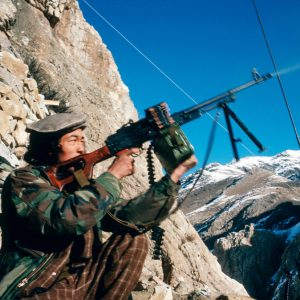Shutterbabe is a memoir that recounts Deborah Copaken’s time spent as a photojournalist; her interests peaked by wars, drugs, and anything grisly the world had to offer. She delved into the different wars and other assignments she was given over the years, each of them tied to a man in her life at the time. She unveiled the world of photojournalism in which she lived in, from the addiction to the adrenaline to the loneliness of the profession. This book gripped my attention and made me want to keep reading until the end. Copaken has compelling stories to tell, there’s no doubt about that, but this book left me wondering how much of what she put in it was fact and how much was slightly fabricated fiction. Overall, I enjoyed the book and the opportunity to watch Copaken grow as a person.
Copaken said that she had always dreamed of becoming a writer. Due to her inspiration to write and the fact that she had interesting stories to tell, Copaken decided to put pen to paper. I believe she wanted to write this book, not only because she aspired to be a writer someday, but because it would help people understand the scary and tumultuous lives of photojournalists.
The craziness of her career was exemplified many times throughout the book. One example of this would be when Pierre and Copaken followed a druggie back to his dilapidated home to get pictures of him shooting up heroin. After the man fell back in a drug induced stupor, Pierre looked at his surroundings and started to feel an overwhelming sense of guilt and hopelessness at the situation. He grabbed a bag and started picking up trash from around the room. Even Copaken helped out and tried to clean the human feces out of the house with a plastic bag turned inside out, picking it up much like you would do for a dog.
“The room’s still dirty,” says Pierre. Tears fill his pleading eyes.
“I know,” I say, “it’s a mess.” But you can’t help every fucked up person in the world, I think. You can’t help every junkie, every starving African kid, every screaming, frightened Vietnamese girl covered in napalm who happens to cross your path. It’s just not possible.”
Although photo journalists can feel this kind of sympathy for others, it is the destructiveness of the world that helps fuel their careers. I thought Copaken hit this selfish sentiment on the head many times, especially when she said,
Love? Who did Pascal think he was kidding? He was like me, like every other war-besotted journalist. An unapologetic hedonist. An adrenaline addict, hooked on fresh blood and the high of survival, on the headlines, the deadlines and the steamy apres deadlines. He was– we all were– stuck in a state of prolonged adolescence, justifying every puerile action under the clever guise of contributing to a noble cause.
With this sense of occasional hopelessness for the world, her own selfishness for enjoying it, and many other self disclosures in mind, Copaken elaborated on the trips she embarked on as a photojournalist. She recounted: her time spent in Afghanistan during the Soviet withdrawal, photographing drug addicts in Switzerland, hunting down poachers in Zimbabwe, seeing horrific sights in Romania, witnessing an insurrection in Russia, her life after turning away from photo journalism, and all of the rocky twists, turns, and love stories along the way. Copaken was thorough in both her description of these events along with her personal feelings throughout the book. It all felt very honest and raw.
However, one of my complaints with this book is that, at times, her writing style left me lost. She had a tendency to start a chapter describing an assignment she was on. She would then stray away from that story line and start another to give some background information. I liked the insight into this information, but sometimes her asides were so long that I forgot what was happening with the main story line once she switched back.
The other slight issue that I take with this book is the fact that she uses direct quotes and vivid description so frequently, that I wonder how much of it is actually true and how much of it is just faint recollections of the past that she fabricated into hard quotes and descriptions. She might have kept a diary to help her remember this information, sure, but I find it hard to believe that she remembers “a plastic fork with one tine missing” and the other vivid details that she incorporates throughout the story. In some of the situations she was in, I also find it hard to believe that she would have been able to keep a diary at all.
Even with my slight grievances with the book, I was pretty happy with it overall. I would recommend Shutterbabe to anyone interested in photography, adventure, and romance.

Speak Your Mind